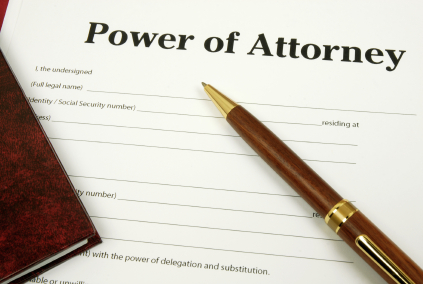We always hope it will never happen to us, but an accident or illness may leave a person mentally unable to make decisions. If that should happen to you, you want someone you know and trust to handle your affairs.
A Lasting Power of Attorney (LPA) is a legal document whereby you appoint someone else to make decisions on your behalf, in the event that such a situation arises in the future. Such a document safeguards you personally, and your family, and is arguably even more important than a will. It can be used during temporary disability, maybe after an operation or accident, or it can run for the rest of a person’s life should they have something like a stroke, or are suffering some progressive disease such as Alzheimer’s.
The person or persons appointed can be a husband or wife, a relative or friend, or a solicitor, accountant or other suitable professional, so long as they are over 18. They become your attorney, and you can appoint more than one if appropriate.
It is very important to make your arrangements in advance, because it can be a long and extremely costly process if your family have to apply through the courts for permission to handle your affairs after a situation has arisen.
Two Types of LPA
Power of attorney can cover the management of either or both of:
- your health and personal welfare
- your property and financial affairs
In that first situation, it can only be used while you are unable to make your own decisions about such things as washing and dressing, your medical care or, ultimately, moving into a care home.
The second type permits someone to make financial decisions, including paying bills and receiving income, managing your bank account, or selling property or assets. This one can be used at any time, if you allow that, even while you still have power to decide yourself. There are separate forms for them.
The Procedure
The process is:
- Choose your attorney(ies).
- Complete the forms appointing them.
- The forms must be signed by yourself, the attorney(ies), and by witnesses.
- Another person must also sign to certify you are fit to make the decision.
- Register the forms with the Office of the Public Guardian.
Registration in England and Wales costs £110 (twice that to appoint both types of attorney) and the process can take up to 10 weeks, so leave sufficient time for it. The process differs somewhat in Scotland and Northern Ireland.
You can cancel an LPA at any time while you are still competent, or replace it with a new one. You can also nominate other persons to replace an attorney who becomes unable or unwilling to fulfil their duty.
What To Consider
There are many things to consider, including who to appoint and what they should have control of.
The person must be someone you know well and trust, who has shown themselves capable of handling affairs, and who will make the best decisions for you. They must also be willing to undertake the responsibility.
If you appoint more than one attorney you must decide in what situations they can act separately or together as they decide (referred to as “jointly and severally”), and when they must agree on decisions jointly.
You might appoint one person to handle your personal welfare, but have a more financially experienced person handle your financial concerns. You can also place restrictions on what an attorney will be allowed to do.
The Future
A Lasting Power of Attorney provides an important level of insurance for your protection and could assist your family members as well, in a possible situation of great stress. It can be arranged by many will writing service providers and estate planning services at the same time as writing a will or setting up a trust.
David Johnson is the owner of Asset Wills, an Essex will writing company who specialise in writing, protecting and executing wills on behalf of their clients.




